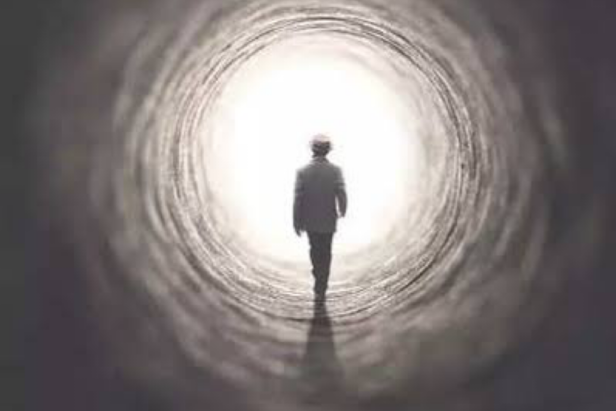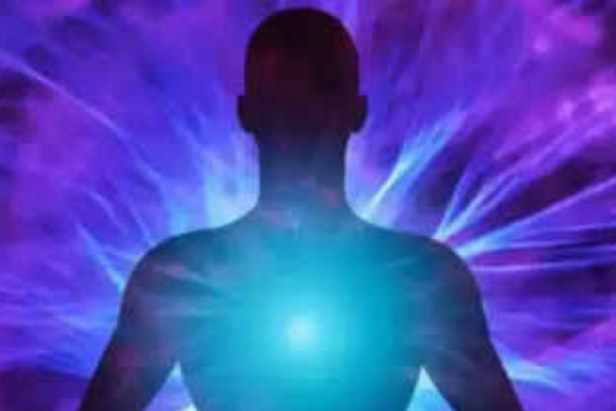Rebirth & Afterlife: Why Humans Never Want to Die?
Yuvraj Nanda | Mar 01, 2025, 23:08 IST
A depiction of afterlife.
Why do humans fear death? Is it the uncertainty, the fear of non-existence, or is it something much deeper? While religion offers comfort through the ideas of rebirth and afterlife, science presents a very different perspective. This article explores the psychological, religious, and rational reasons behind our fear of dying.
A living being belonging to the human race is ready to accept rebirth, afterlife, paradise or even hell—but not death! Why do we not want to die (at all)? Death is an event that is completely inevitable, yet it remains one of the greatest sources of fear and uncertainty for humans. Throughout our human history, the different cultures and various religions have provided explanations of this—some believe in reincarnation, others in an eternal afterlife, while some factually argue that death is simply the end. But why does even the thought of dying trouble us so deeply? Is it the fear of the unknown, the loss of identity, or something even more than this?

Despite all human advancements, death still remains an unsolved mystery. No one knows with certainty what happens after we take our final breath. This lack of knowledge is unsettling—but why can we not accept that there is nothing beyond death? The same feeling of nothingness as it was before your birth? What if consciousness simply fades away? The inability to answer these questions fuels anxiety, making people search for comfort in religion and philosophy.
Religious beliefs of people around the world have long attempted to ease this fear of dying. From our ancient Indian culture, Hinduism describes a cycle of rebirth, where the soul is born into a new life based on past actions. The Abrahamic Religions like Islam and Christianity promise an afterlife, where heaven or hell awaits based on one’s deeds and is determined by the almighty on the day of judgement. These ideas do provide hope, but they also raise more questions—are they genuine truths or just human-made concepts designed to make death less frightening than it actually is? (is it?)
A major reason people fear death is the idea of non-existence. The thought of everything—memories, relationships, experiences—disappearing forever is difficult to accept. Humans naturally seek continuity, whether through religious beliefs, family legacies, or personal achievements. This need to “live on” in some form is deeply ingrained in human nature.
Even those who do not believe in an afterlife often try to find ways to be remembered. Some create art, write books, or build businesses, hoping their impact will outlast them. This desire for meaning is closely tied to the fear of death—if we can leave something behind, maybe we were here for a reason.
What If Death Is Just the End?While religious and philosophical perspectives on death are comforting, the scientific view remains straightforward—there is no proven evidence of an afterlife or rebirth. Many neuroscientists argue that consciousness is simply a function of the brain. Once the brain stops working, so does awareness, just as it was before birth.

But does this make death something to fear? Perhaps our fear comes not from death itself, but from our attachment to life. If we accept that life is temporary and that we simply return to the universe, would death feel less terrifying? Some ancient philosophies, such as Stoicism and Buddhism, suggest that accepting mortality brings a sense of peace rather than fear. After all, we do not fear the time before we were born—so why fear what comes after?

A depiction of afterlife.
The Fear of the Unknown
Religious beliefs of people around the world have long attempted to ease this fear of dying. From our ancient Indian culture, Hinduism describes a cycle of rebirth, where the soul is born into a new life based on past actions. The Abrahamic Religions like Islam and Christianity promise an afterlife, where heaven or hell awaits based on one’s deeds and is determined by the almighty on the day of judgement. These ideas do provide hope, but they also raise more questions—are they genuine truths or just human-made concepts designed to make death less frightening than it actually is? (is it?)
The Desire for Meaning and Continuity
Even those who do not believe in an afterlife often try to find ways to be remembered. Some create art, write books, or build businesses, hoping their impact will outlast them. This desire for meaning is closely tied to the fear of death—if we can leave something behind, maybe we were here for a reason.
What If Death Is Just the End?While religious and philosophical perspectives on death are comforting, the scientific view remains straightforward—there is no proven evidence of an afterlife or rebirth. Many neuroscientists argue that consciousness is simply a function of the brain. Once the brain stops working, so does awareness, just as it was before birth.

A depiction of soul.
But does this make death something to fear? Perhaps our fear comes not from death itself, but from our attachment to life. If we accept that life is temporary and that we simply return to the universe, would death feel less terrifying? Some ancient philosophies, such as Stoicism and Buddhism, suggest that accepting mortality brings a sense of peace rather than fear. After all, we do not fear the time before we were born—so why fear what comes after?
